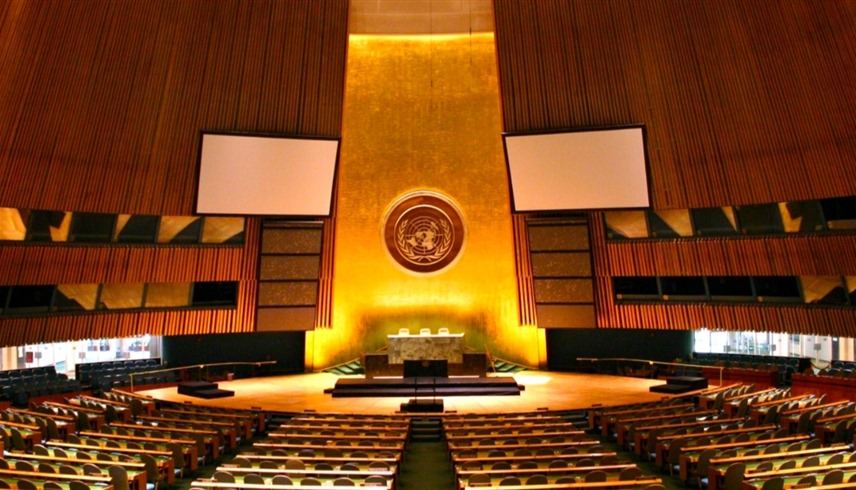Netanyahu's Political Shake-Up: Defense Minister at Risk
Israeli Prime Minister Benjamin Netanyahu's possible replacement of Defense Minister Yoav Gallant has stirred the political landscape and raised significant questions about the country's defense strategies.
Published September 19, 2024 - 00:09am

Image recovered from arabnews.com
In a move that could dramatically alter Israel's political and security landscape, Prime Minister Benjamin Netanyahu is reportedly considering replacing Defense Minister Yoav Gallant. Reports from Israeli media, including leading television channels and news websites, indicate that Netanyahu, under pressure from far-right coalition partners, is contemplating firing Gallant and appointing Gideon Saar, a member of the opposition and leader of the New Hope party, as his successor.
The potential replacement of Gallant comes at a time of heightened tensions with Iran-backed Hezbollah in Lebanon and ongoing conflict with Hamas in Gaza. Israeli financial markets responded to the news with notable drops; the shekel weakened by 1% against the dollar, and Tel Aviv's main share indices fell by 1.4% to 1.6%.
The shekel was previously expected to appreciate following data released on Sunday, indicating an unexpected rise in Israel's inflation rate to 3.6% in August. This inflation spike is anticipated to delay interest rate cuts until 2025, contrary to expected rate cuts in the United States and Europe.
Netanyahu has denied being in negotiations with Saar but has not explicitly addressed his plans for Gallant. Similarly, Saar has denied any negotiations with coalition members. This development is not entirely unexpected, as Netanyahu and Gallant have been at odds over various government policies, including the handling of the war in Gaza and the terms of possible hostage releases and ceasefire deals with Hamas.
Centrist lawmakers, such as Benny Gantz, have criticized Netanyahu for prioritizing political maneuvers over critical national security issues. Gantz expressed his concerns on social media, stating that Netanyahu should focus on defeating Hamas, securing the return of hostages, addressing the conflict with Hezbollah, and enabling residents in the north to return to their homes rather than engaging in political infighting.
Police Minister Itamar Ben-Gvir, leader of an ultranationalist party within Netanyahu's coalition, has been a vocal advocate for Gallant's dismissal, arguing that Gallant is ill-suited to lead the military efforts in northern Israel against Hezbollah. The situation in the north has forced tens of thousands of Israelis near the Lebanese border to evacuate due to daily rocket fire from Hezbollah.
Gallant, a former general with a 35-year military career, has maintained a cautious approach, urging for diplomatic solutions and a ceasefire agreement in Gaza. He has also emphasized the necessity of military action to ensure the safe return of northern residents to their homes.
In March 2023, Gallant's pushback against Netanyahu's highly contested judicial overhaul plan led to his temporary dismissal, which sparked mass protests and prompted Netanyahu to reverse his decision.
Adding to the complexity of the situation is the potential impact of Saar's appointment on Israel's internal political dynamics and its approach to the conflict with Hezbollah. Reports suggest that Netanyahu's aim in appointing Saar is to balance the influence of the far-right elements in his coalition, potentially signaling a more aggressive stance against Hezbollah.
The Temple Mount, a significant religious and political flashpoint, has also been a topic of contention. Netanyahu's government faces additional pressure from coalition partners advocating for changes in the status quo, which could further escalate tensions with Palestinian groups and neighboring countries.
Amidst the political upheaval, U.S. President Joe Biden's Middle East envoy, Amos Hochstein, arrived in Israel to engage in diplomacy. His meetings with Netanyahu and other Israeli leaders are expected to address the ongoing conflict and potential resolutions. During a meeting with Hochstein, Gallant stressed the need for action against Hezbollah as a means to facilitate the return of displaced northern residents.
On the Palestinian side, senior Hamas leader Osama Hamdan, in an interview with Al-Jazeera, reiterated the group's readiness for an extended conflict. Hamas leader Yahya Sinwar has also expressed a commitment to a protracted struggle, further complicating the prospects for peace in the region.
As Netanyahu navigates these turbulent political waters, the potential dismissal of Gallant and appointment of Saar remains a focal point of speculation and concern. The decision carries significant implications for Israel's defense strategy, political stability, and its handling of the complex and volatile regional conflicts.






